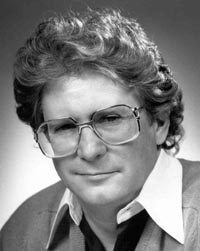
Year Born: 1929
Year Died: 2001
Pioneer
Faibish, Roy (1929-2001)
Roy Faibish went from politics to the CBC to the Canadian Radio-television and Telecommunications Commission and back to broadcasting. Along the way he was vice-chairman of the CRTC and an advisor to Progressive Conservative prime ministers John Diefenbaker and Brian Mulroney. Canadian writer Peter Newman called him the best mind the Tories attracted in a generation.
He grew up in Regina, studied history, English and philosophy at Queens University, and lectured at Royal Military College before returning to Regina to work with Tommy Douglas, leader of the Co-operative Commonwealth Federation then in power in Saskatchewan. He returned briefly to the Defence Department before becoming executive assistant to Alvin Hamilton, minister of northern affairs in the Diefenbaker government, then a policy advisor to and speech writer for Diefenbaker. He was hired by the CBC in 1963 and worked as a writer/editor and producer on the current affairs show Inquiry and its successor This Hour Has Seven Days.
He took leave of absence from the CBC to join the staff of the Fowler Committee. Lawyer Robert Fowler had chaired a 1950s royal commission on broadcasting whose conclusions were not accepted by the Diefenbaker government. In 1965 Fowler was appointed to head a new investigative committee whose recommendations led to the creation of the CRTC by the then Liberal government. The report was critical of CBC management and its friction with the Seven Days program staff. The show died in 1966 when negotiations for its continuation collapsed.
Faibish resigned days before his CBC contract would have expired in 1966 and went to CJOH-TV Ottawa to work in public affairs.
In 1976, Faibish was appointed to the CRTC. In 1978, he was threatened with being declared in contempt of parliament after Liberal MP Simma Holt accused him of telling her to shove anti-CRTC buttons she was distributing “up your _ _ _.” He admitted to a “vigorous conversation” with Holt.
He moved to England in 1978 to represent Rogers Cable and as a special advisor to British Telecom’s Broadband Services, but remained a valued advisor to Mulroney who was reported to have offered Faibish several job options including presidency of the CBC to lure him back to Canada.
Roy Fabish died in London of a heart attack in March 2001.
Written by Jerry Fairbridge – August, 2002
